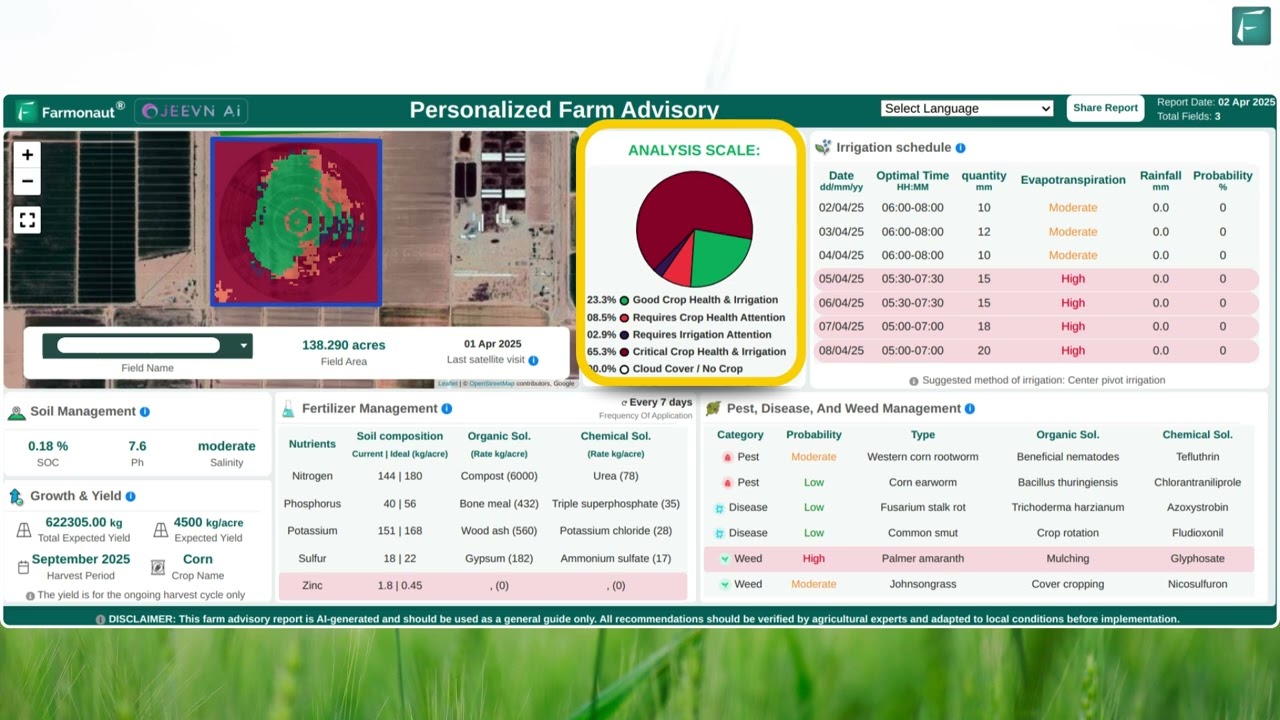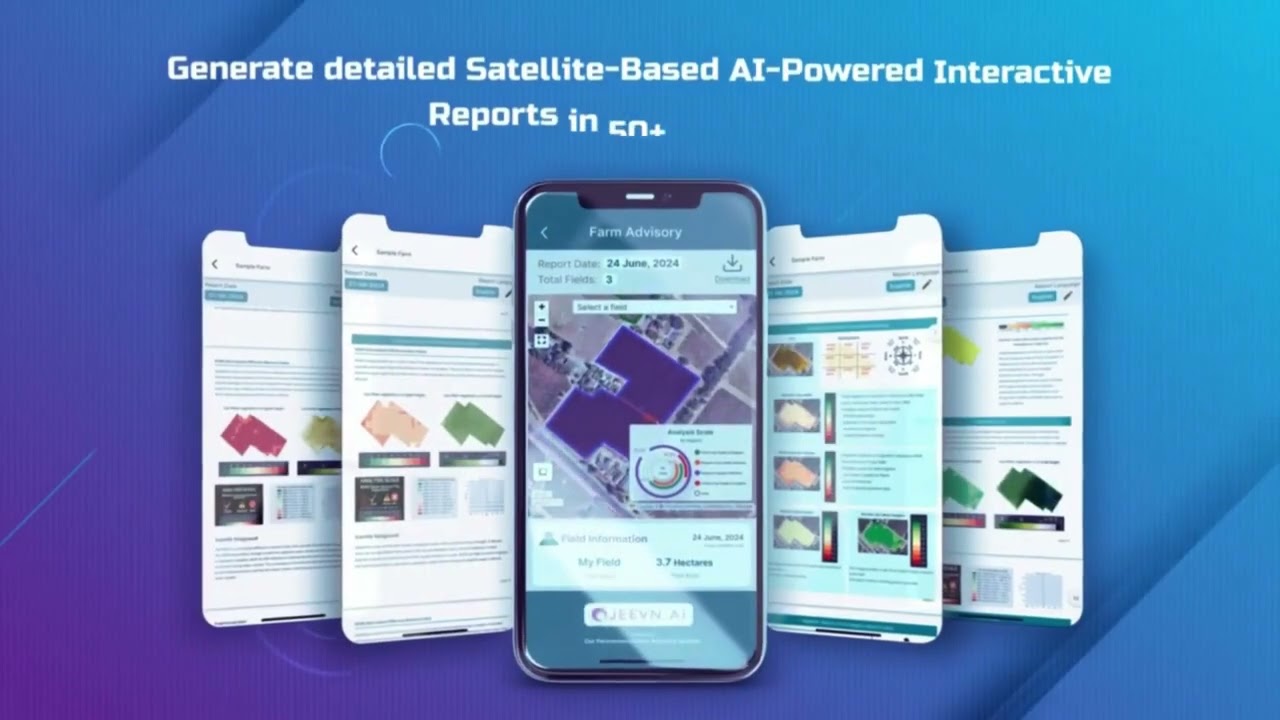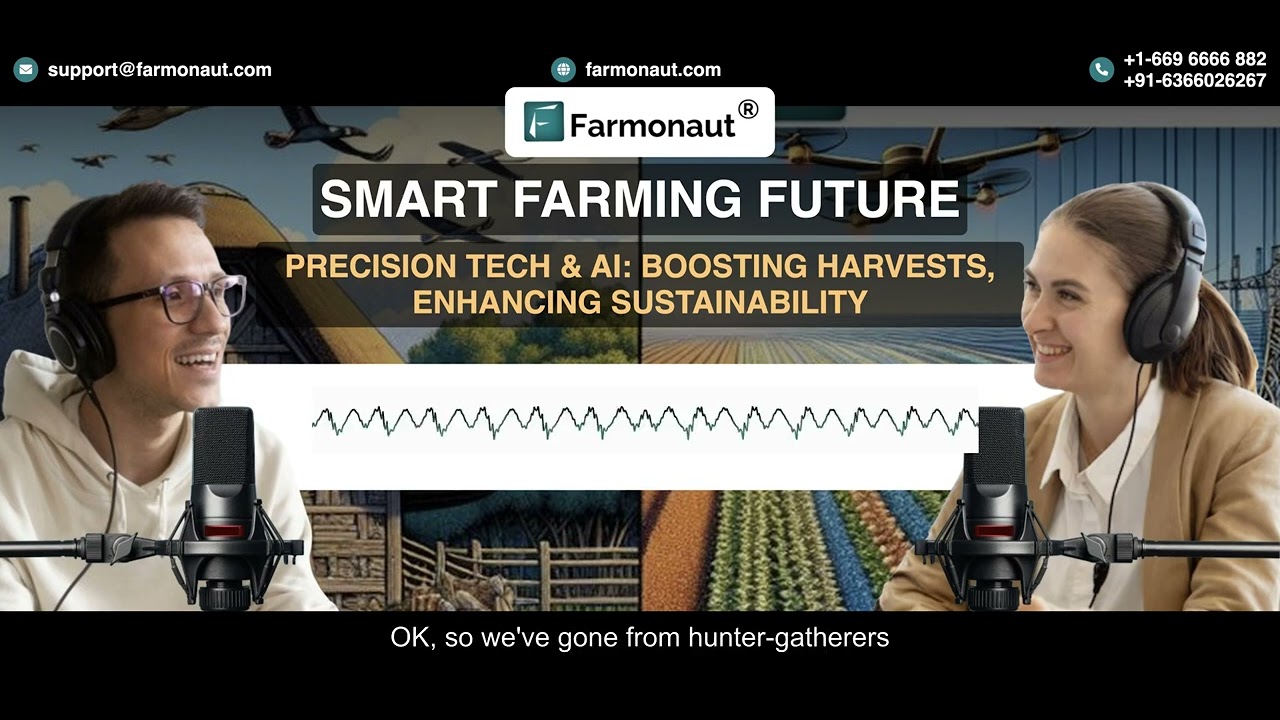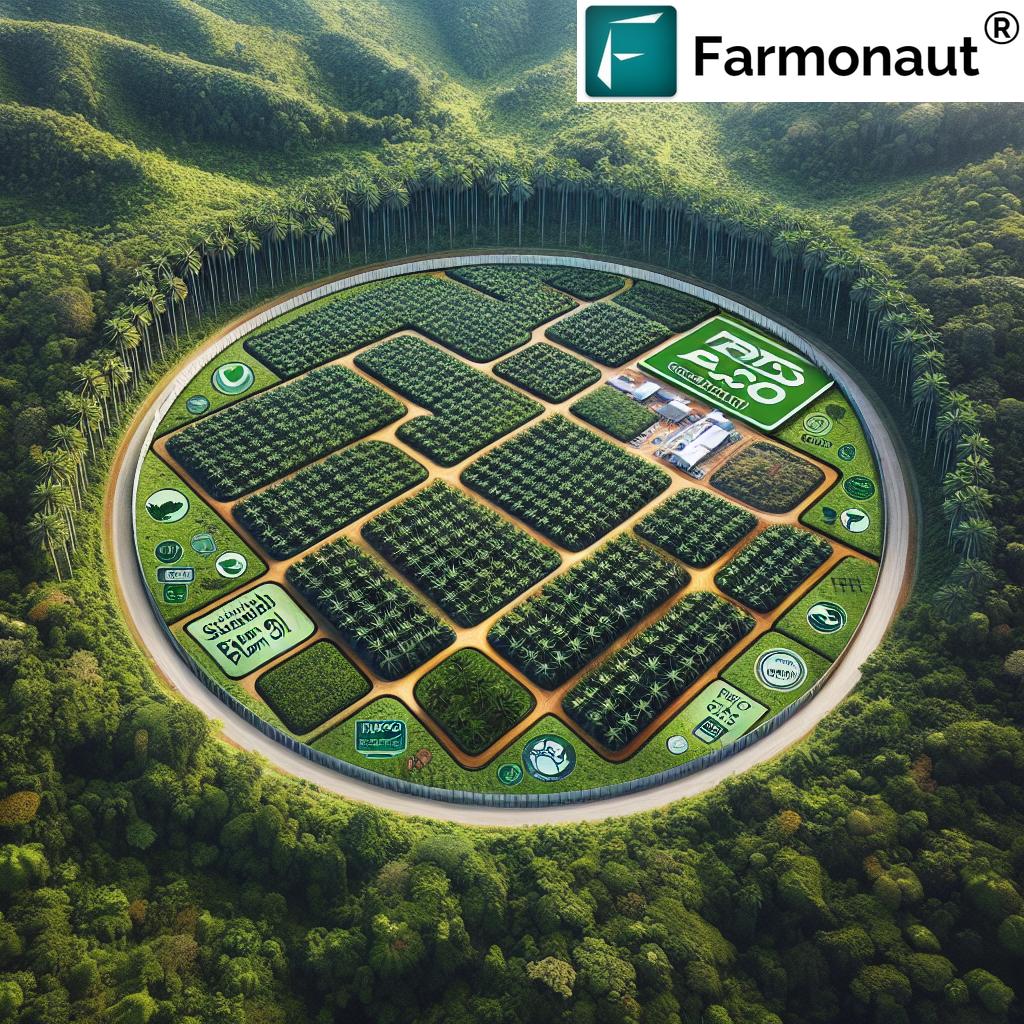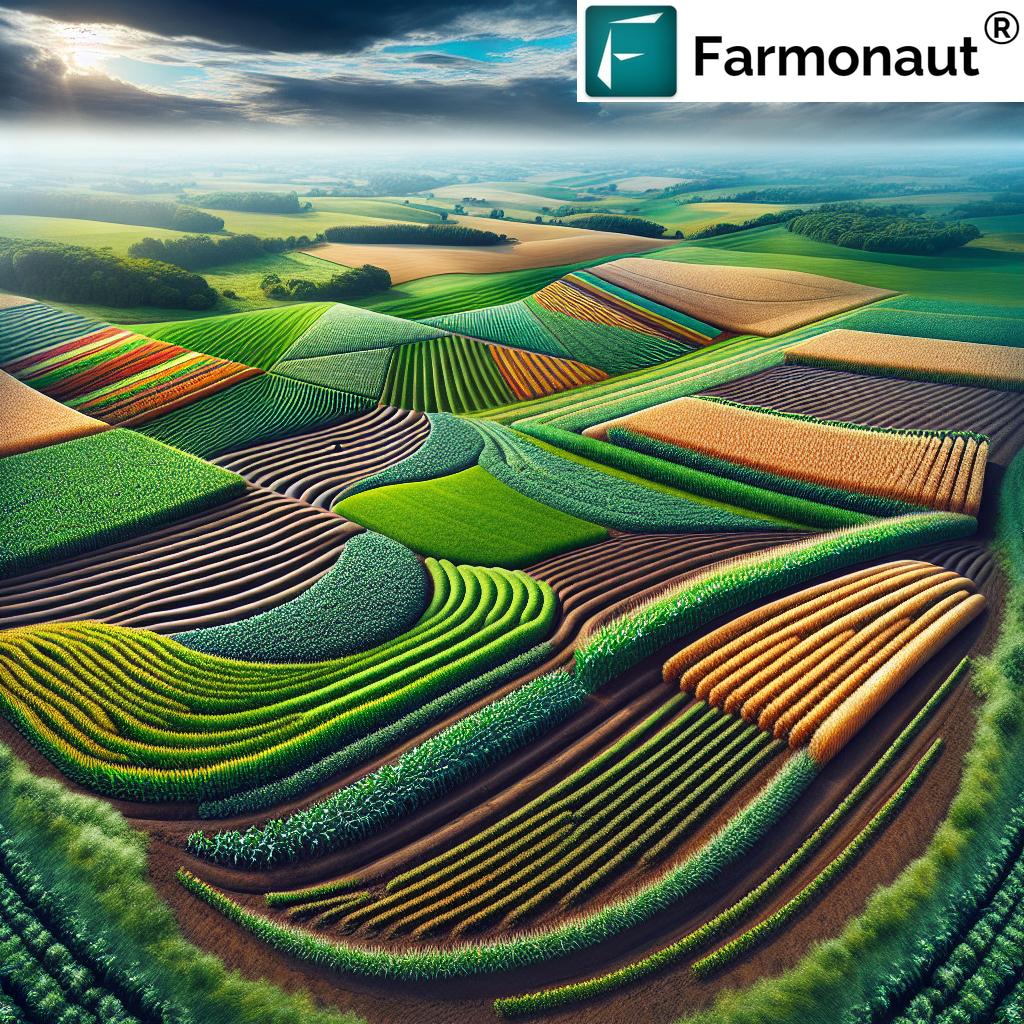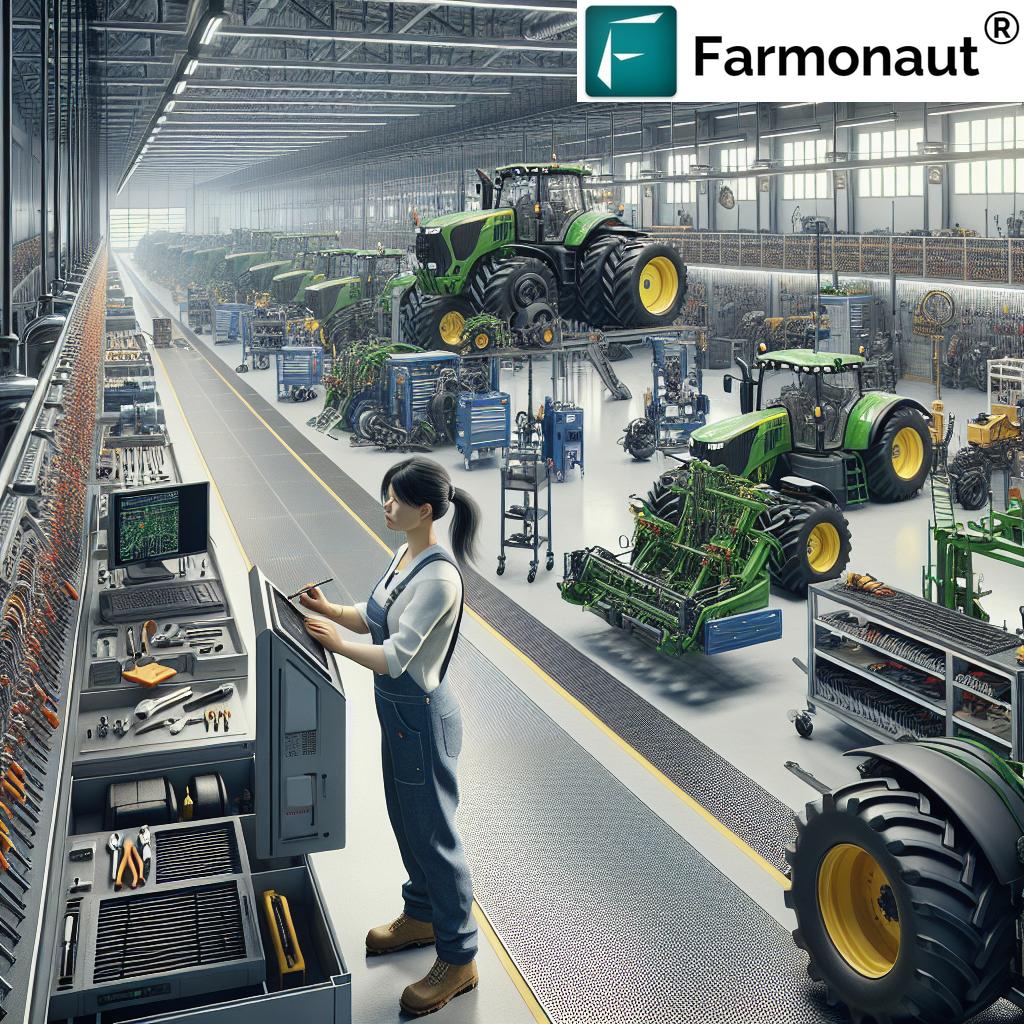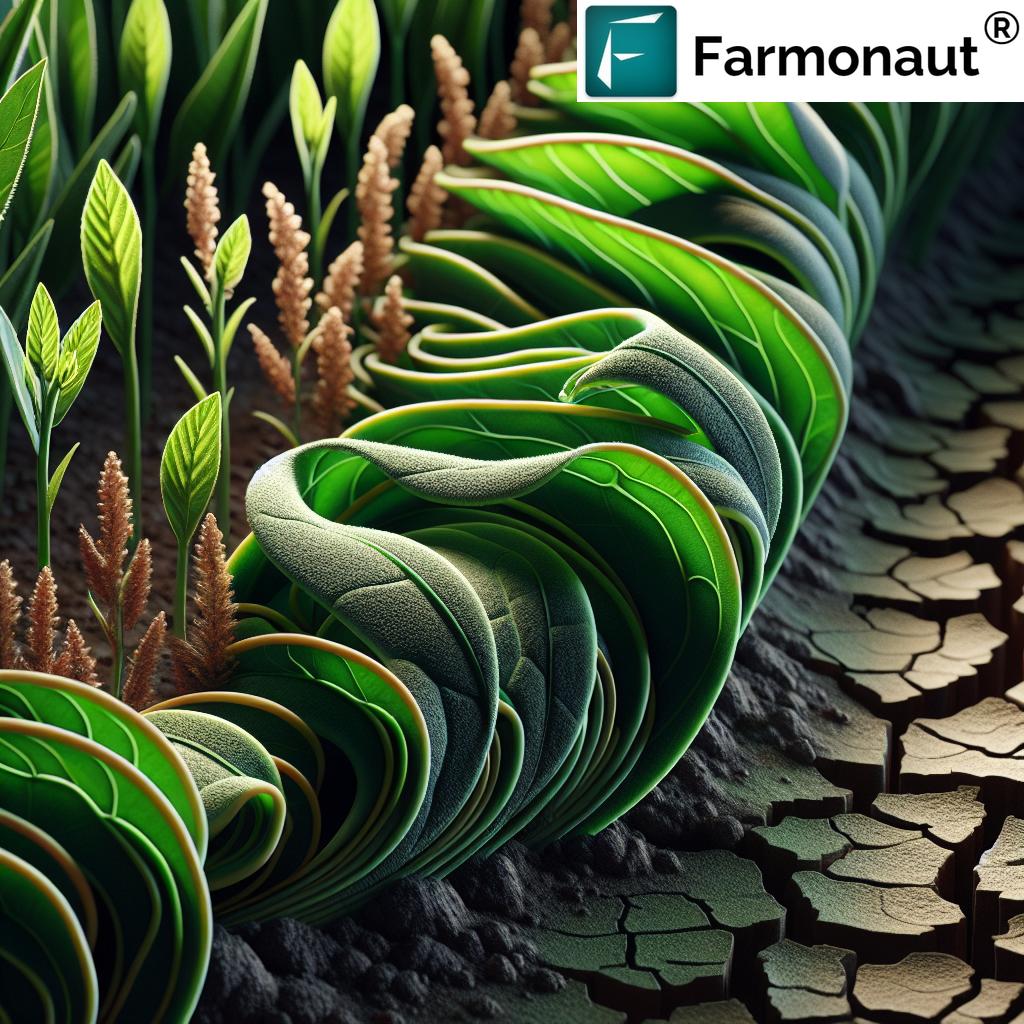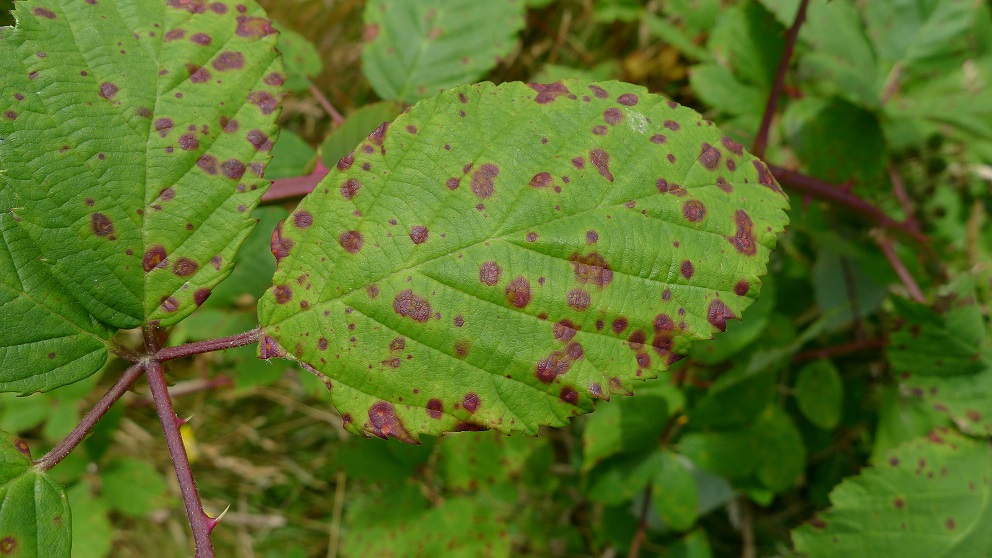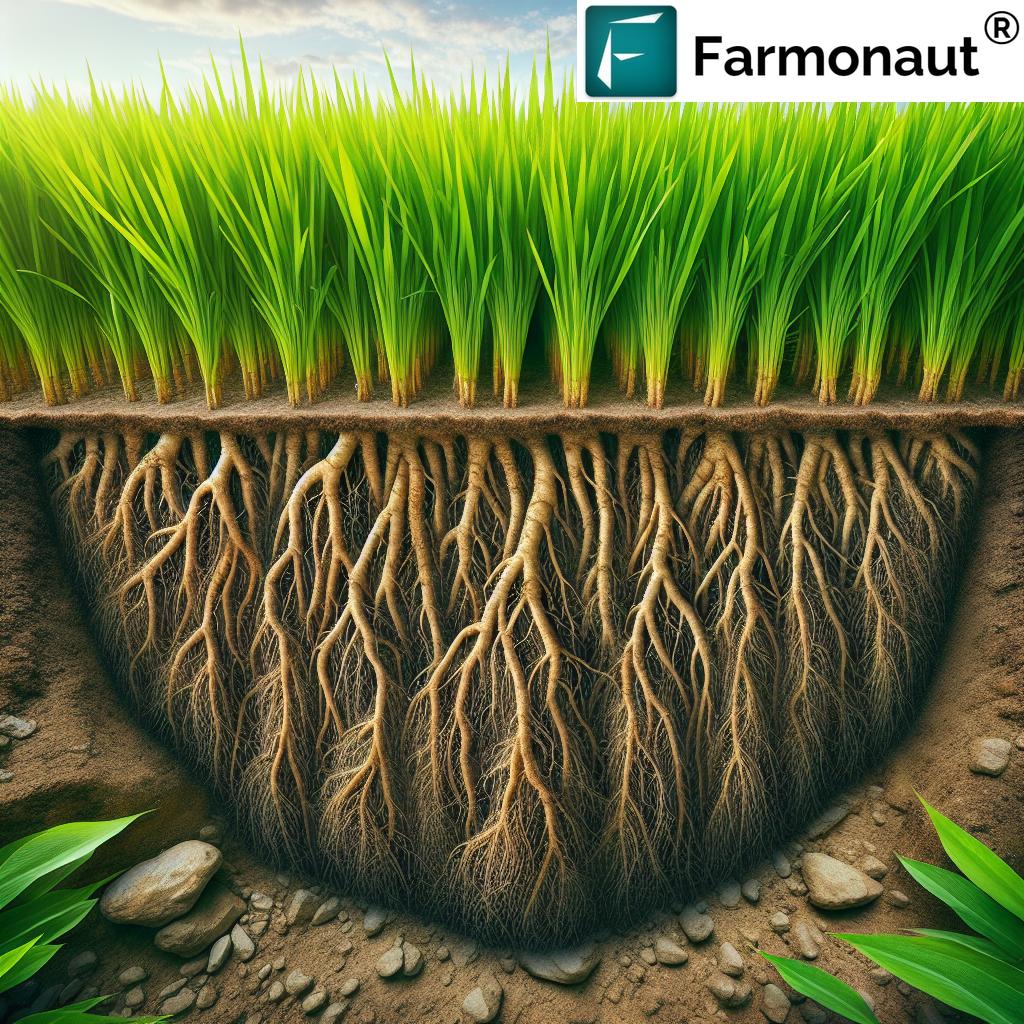Agriculture Technology for Long Term Care: 2025 Trends
Table of Contents
- Introduction: The Pressing Need for Agriculture Technology for Long Term Care
- The Role of Agritech in Long-Term Agricultural Care
- Precision Agriculture Technology in 2025
- AI, IoT, Robotics, and the Smarter Farms of 2025
- Biotechnology and Climate-Smart Agriculture Solutions
- Trend Comparison Table: Key Agritech Innovations Shaping Long-Term Care in 2025
- Agriculture Technology Careers and Opportunities in 2025
- Agribusiness Strategies for Long-Term Care
- Sustainable Supply Chains and Blockchain Traceability
- How Farmonaut Enables Advanced, Accessible Solutions
- Conclusion: Shaping a Resilient Food Future with 2025 Agritech Innovations
- FAQs: Agriculture Technology for Long Term Care
Introduction: The Pressing Need for Agriculture Technology for Long Term Care
As we propel into 2025, agriculture technology for long term care stands at the crossroads of critical global priorities. The world’s population continues to grow, crossing 8 billion, and with it, the pressure on our agricultural sector intensifies. Climate change, resource limitations, and environmental challenges are converging to create unprecedented demand for sustainable, efficient, and resilient farming systems.
Traditional methods of farming and land management are yielding ground to agritech for long term care—innovative, data-driven approaches that safeguard soil and water, reduce chemical dependency, anticipate threats, and nurture productive farming communities. Today’s farmers and agribusinesses must not only produce food efficiently but also plan several seasons ahead, ensuring the health of crops, soil, and communities for generations.
This article explores the 2025 trends in agriculture technology for long term care, from precision machinery and AI-driven systems to futuristic biotechnology and digital platforms. We will also examine new career opportunities in agriculture technology careers and how these advancements are shaping the future of the sector.
The Role of Agritech in Long-Term Agricultural Care
At the heart of long-term agricultural care is a commitment to maintaining soil health, conserving water, managing pests sustainably, and ensuring crop resilience across successive seasons. This holistic care involves the strategic use of agritech—from precision monitoring to predictive models—that minimize resource misuse, maximize productivity, and protect local ecosystems.
- Soil health monitoring and management: Using advanced sensors and satellite-based insights, modern agriculture technology enables farmers to monitor soil condition, moisture levels, and nutrient content with precision. This approach is integral to ensuring healthy, fertile land year after year.
- Water conservation: IoT devices and smart irrigation platforms offer granular control over water usage, helping to combat increasing environmental pressure on global water resources.
- Integrated pest management: AI-powered analytics and drones allow for sustainable pest monitoring and control—reducing the need for blanket pesticide use and supporting a balanced ecosystem.
- Data-driven decision making: Real-time data empowers the creation of predictive models that anticipate pest outbreaks, weather anomalies, and diseases before they manifest, transforming how farmers plan and respond for long-term success.
Through these methods, agritech for long term care is empowering farmers, agribusinesses, and rural communities to address the dual challenges of productivity and conservation—ensuring secure, sustainable food systems for a rapidly changing world.
Precision Agriculture Technology in 2025: A Cornerstone for Long-Term Care
One of the most transformative trends in agriculture technology for long term care is the continued rise and refinement of precision agriculture. In 2025, precision farming leverages GPS-guided equipment, robotics, and high-resolution satellite imagery to optimize input use and maximize yields sustainably.
How does precision agriculture work?
- GPS-Guided Tractors & Machinery: Advanced tractors and harvesters can operate autonomously, minimizing overlap and reducing soil compaction. Autonomy enhances operational efficiency and reduces labor costs.
- Soil & Plant Health Sensors: Internet-connected sensors monitor soil moisture, nutrient content, and plant growth rates. This supports precise application of fertilizers, pesticides, and water, significantly reducing unnecessary inputs.
- Drones and UAVs: Drones map fields, detect emerging threats, and even spray crops with pinpoint accuracy.
- Remote Sensing: Satellite data offers insights into vegetation health, irrigation needs, and climate patterns, driving smarter decisions for long-term care.
This data-driven approach supports sustainable practices, reduces costs, and enables farmers to achieve long-term goals with measurable environmental benefits. It also forms the backbone of modern farm management platforms, streamlining operations large and small.
Real-time crop monitoring is key for productive farms. Our platform leverages satellite-driven analytics to provide real-time views of crop vigor, soil moisture, and evolving risks. This empowers actionable decision-making and timely interventions.
AI, IoT, Robotics, and the Smarter Farms of 2025
Looking toward the future technology for agriculture, the integration of artificial intelligence, the Internet of Things (IoT), and advanced robotics is enabling a new era of smarter, more autonomous farms.
AI-Powered Predictive Models
- Early Warning Systems: AI platforms analyze historical and real-time data—including weather, remote sensing, and pest observations—to predict and preempt pest outbreaks, diseases, and anomalies before they reach a critical scale.
- Production Planning: By forecasting crop growth and weather shifts, AI helps farmers and agribusinesses plan stable production cycles and enhance food security.
IoT Farm Management & Smart Devices
- Connected Sensors track equipment, irrigation, temperature, and more. This yields data that feeds into integrated dashboards, helping quickly identify issues and optimize resource use.
- IoT-based Platforms, such as those provided by Farmonaut, centralize remote data to facilitate operational efficiency, traceability, and environmental monitoring.
Robotics, Autonomous Tractors & Robotic Harvesters
- Autonomous Machinery such as robotic weeders, planters, and autonomous harvesters are minimizing manual labor and reducing operational delays.
- Labor Efficiency: Robotic solutions free human workers for higher-value tasks and rapidly scale as demand grows.
For managing expansive farmlands and fleets of machinery, our large scale farm management solution offers centralized, real-time resource, fleet, and operations monitoring. These features enhance operational efficiency while ensuring that best practices are maintained at scale.
Biotechnology and Climate-Smart Agriculture Solutions
Biotechnology in 2025 is actively redefining future technology for agriculture. Thanks to genomic editing, biofertilizers, and sustainable crop protection, farmers are better equipped to handle unpredictable climate conditions.
- Gene Editing: Crops are being engineered for disease resistance, drought tolerance, and nutrient use efficiency, reducing dependence on chemical inputs.
- Biological Inputs: Eco-friendly biofertilizers and biopesticides support soil biodiversity and decrease environmental impact.
- Climate-Smart Strategies: Technologies for carbon footprint monitoring and adaptation help mitigate agriculture’s environmental effects.
If you want real-time tracking and reduction of emissions in agricultural operations, our carbon footprinting solution provides actionable insights for compliance and sustainability, efficiently supporting climate-smart farming.
These climate-smart solutions and platforms not only improve productivity, but also ensure the long-term resilience of farms facing climate uncertainty.
Trend Comparison Table: Key Agritech Innovations Shaping Long-Term Care in 2025
| Agritech Trend | Estimated Adoption Rate (2025) | Impact on Sustainability | Potential Careers Created | Description/Benefits |
|---|---|---|---|---|
| Precision Farming | ~55% | High – Reduces input waste, boosts yields, protects soil & water | Data analysts, GPS techs, precision machinery operators | Data-driven application of water, fertilizer, and pesticides to minimize resource use and maximize consistency |
| AI-driven Drones & Analytics | ~35% | Very High – Enables targeted intervention and rapid response to disease/pests | Drone pilots, AI model developers, remote sensing experts | Aerial crop scouting, yield estimation, and hyper-local spraying to reduce losses |
| Remote Sensing (Satellite Imaging) | ~48% | High – Supports sustainable land use and environmental compliance | Satellite data analysts, GIS specialists | Continuous field monitoring, early detection of stress, and optimized planning |
| IoT Sensors & Platforms | ~41% | High – Efficient water/resource use, real-time management of farm conditions | Ag IoT engineers, platform managers, hardware integrators | Automated sensor networks for soil, weather, and equipment data feeding into centralized farm dashboards |
| Climate-Smart Solutions | ~28% | Very High – Mitigates climate risk and supports global sustainability | Climate data scientists, carbon analysts, sustainability officers | Emissions tracking, carbon credit generation, climate adaptation strategies |
| Autonomous Tractors & Robotic Harvesters | ~32% | Medium to High – Increases efficiency, decreases manual labor, supports sustainable scaling | Robotics technicians, autonomous vehicle operators | Self-guided field operations and crop collection for improved productivity |
Agriculture Technology Careers and Opportunities in 2025
As future technology for agriculture accelerates, the field of agriculture technology careers is expanding rapidly. The skills needed in modern agritech span both traditional agricultural knowledge and advanced expertise in areas such as data science, AI, engineering, and environmental science.
-
Career opportunities now include roles like:
- Satellite data analyst
- AI and robotics engineer
- IoT platform developer
- Agronomic software specialists
- Climate risk analyst
- Blockchain traceability manager
- Growing demand for interdisciplinary skills is driving educational transformation, with universities introducing degrees exclusively focused on agriculture technology for long term care and digital farming solutions.
According to sector projections, over 60% of fresh roles in 2025 will require technical and data-driven competencies. The pipeline of talent in agritech is thus essential for innovation, productivity, and sustainability across global agriculture.
Access powerful, satellite-driven insights for crop health, real-time farm monitoring, and smart resource management with Farmonaut on web, Android, and iOS!
Agribusiness Strategies for Long-Term Care
Agribusiness long term care has shifted from strictly operational concerns to a comprehensive, data-centric approach. Agribusinesses are leveraging advanced platforms, AI, and IoT to meet the ever-evolving demands of global markets, manage environmental risk, and comply with sustainability guidelines.
- Sustainable Resource Management: Precision monitoring of land and water resources reduces waste and costs while supporting operational continuity.
- Regulatory Compliance: Digital traceability platforms and environmental monitoring ensure food is produced according to international sustainability standards.
- Demand Prediction & Risk Mitigation: AI and predictive analytics provide foresight into market volatility, supply chain issues, and climate-related disruptions.
- Consumer Engagement: Transparent supply chains help build trust and allow consumers to align with brands that prioritize sustainable practices.
Digitally mature operations outperform their peers in productivity, profitability, and resilience—making technology integration essential in agritech for long term care.
Our fleet management tools offer real-time tracking and optimization for vehicles and equipment. This brings cost savings, enhances efficiency, and supports safety for large agricultural operations or agribusinesses operating at scale.
Sustainable Supply Chains and Blockchain Traceability
Transparent, sustainable food supply chains are no longer optional—they are an expectation for both regulators and consumers. Blockchain-based traceability is emerging as a preferred method for ensuring every product and process is secure, auditable, and authentic.
-
Traceability benefits:
- Prevents fraud and product tampering
- Improves supply chain efficiency
- Builds consumer and partner trust
- Facilitates compliance with food safety regulations
- Blockchain platforms enable rapid response if contamination or quality issues are detected—thereby minimizing losses and protecting public health.
For seamless, transparent supply chain management, our traceability platform integrates blockchain technology, offering verified, secure records from farm to table. This ensures compliance and trust for agribusinesses and consumers alike.
How Farmonaut Enables Advanced, Accessible Solutions
We at Farmonaut are dedicated to making satellite, AI, and blockchain-based agricultural technology accessible and affordable for farmers, businesses, and governments worldwide. Our platform offers a modular ecosystem curated for sustainability and operational efficiency across multiple use-cases:
- Satellite-Based Crop and Soil Monitoring: Our system utilizes multispectral satellite imaging to deliver timely updates on vegetation health, soil moisture, and nutrient content. This empowers farmers to make informed, sustainable decisions.
- AI Advisory (Jeevn AI): Our AI engine delivers personalized, actionable guidance for crop management, weather adaptation, and risk reduction.
- Blockchain-Enabled Traceability: We ensure food safety, transparency, and consumer trust with secure, blockchain-based systems—key to modern agritech for long term care.
- Realtime Environmental Impact Tracking: Our platform enables carbon footprint monitoring for compliance and sustainable farm development.
- Accessible App Ecosystem & APIs: Users can access advanced analytics, real-time monitoring, and operational dashboards via web, Android, and iOS apps. Developers and integrators leverage our APIs (developer docs) for customized solutions.
- Flexible Pricing & Scalability: Our subscription model fits users from small-scale operators to large businesses, allowing them to scale as operations grow.
Need reliable field verification for agricultural insurance and credit? Our satellite-based verification reduces fraud and streamlines the crop loan and insurance application process.
Looking for expert guidance for forest or plantation management? Our forest/plantation advisory delivers advanced satellite and AI advice for long-term landscape care.
Conclusion: Shaping a Resilient Food Future with 2025 Agritech Innovations
Agriculture technology for long term care is the linchpin to sustainable productivity, resilient communities, and successful agribusinesses in 2025 and beyond. We are witnessing an era where precision agriculture, AI, IoT sensors, robotics, biotechnology, and blockchain platforms converge to create smarter farms and robust supply chains.
The new generation of agriculture technology careers will be fueled by cross-disciplinary expertise, digital fluency, and a passion for sustainability. From field-level monitoring to cloud-based analytics and transparent traceability, every innovation supports a shared goal: feed the world while preserving its resources for decades to come.
As global challenges intensify, every stakeholder—from farmer to agribusiness leader—must embrace the advanced solutions and platforms available today. By doing so, we ensure not just food security, but a thriving future for agriculture, its workforce, and the planet.
FAQs: Agriculture Technology for Long Term Care
What is agriculture technology for long term care?
Agriculture technology for long term care refers to advanced agritech tools and platforms focused on sustaining soil health, conserving water, managing pests, and ensuring productivity across multiple growing seasons. These technologies support ecosystem integrity, operational resilience, and food security.
How does agritech for long term care support farmers?
Agritech provides farmers with precision tools such as soil sensors, AI-based advisory, satellite remote sensing, and autonomous machinery. This empowers them to optimize inputs, reduce waste, anticipate risks, and respond more effectively for sustainable, profitable harvests.
What are the main trends in future technology for agriculture in 2025?
Major 2025 trends include the adoption of precision farming, AI and drone-driven analytics, remote sensing, IoT farm management platforms, autonomous equipment, and blockchain traceability. These innovations are reshaping farm management, crop prediction, and supply chain transparency.
Which career paths are emerging in agriculture technology?
Key agriculture technology careers in 2025 span satellite data analytics, AI/IoT engineering, agronomic software development, robotics, blockchain management, and environmental consulting—making this a dynamic, high-demand job sector.
How is agribusiness long term care transforming supply chains?
Agribusiness long term care solutions leverage digital monitoring, predictive analytics, carbon tracking, and blockchain systems to ensure transparent, compliant, and efficient supply chains—protecting both food quality and brand reputation.
How does Farmonaut support agriculture technology for long term care?
We at Farmonaut provide accessible, cost-effective satellite monitoring, AI-based advisory, blockchain traceability, and resource management platforms. Our solutions empower users of all sizes to achieve operational efficiency, transparency, and environmental sustainability.
If you’re developing custom platforms or business solutions, integrate with our Farmonaut API (developer docs here) for fast, scalable access to our latest satellite, weather, and traceability data.
Explore the future of sustainable and productive agriculture. Download the Farmonaut app today for actionable insights and smarter decisions at your fingertips!






